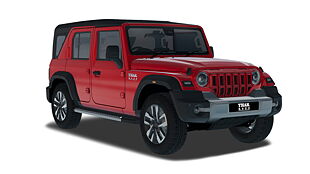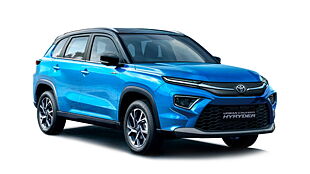Raid De Himalaya 2017
Dust, elevation, bone-chilling cold, oxygen deprivation and a bunch of adrenaline junkies. This is exactly what the Raid De Himalaya embraces each year.

As it turned out, it isn’t easy to make your way through the haze of beliefs and prejudices while scaling the Himalayas, especially when you have lived the urban life in a city like Bombay. The colossal mountain range is more than just an abode of snow, taking shape of a dreamland each time you begin talking about it and all that you are left with are images of the meandering rivers, extreme weather and great heights.
Naturally, the Himalayas made for a fitting battleground for the 2017 Maruti Suzuki Raid De Himalaya.

Every year since 1999, Raid De Himalaya has given us the most daring racers when it comes to cliff-edge thrills. This year's edition was no different – over 150 crazy and rather heroic drivers and riders gathered at the starting point in Manali. The goal: traversing through the bad terrain of the Himalayas at race pace with temperatures as low as minus 10 degree Celsius – all without flying off the gut-punishing corners.
The 2017 edition of the Raid took place in the awe-inspiring backdrops of Kaza, Sarchu, Pang, Leh, Kargil and Pensi La. And while the mesmerizing route covered some of the highest and the most hostile roads in the world and assured us a plethora of Instagram-worthy pictures, it also gave me a chance to explore, admire and soak in the magnificence of this enchanted land.

As always, Day 1 at the Raid was rather subdued, with the competitors turning up at the scrutiny bays. It was at this point that the crucial task of putting the vehicles under the scanner began. The vehicles were looked at and inspected for their safety equipment like seat harnesses, fire extinguishers and a roll cage.

Every now and then we would hear from the organisers about how the Raid pulls one out of their comfort zone right from day one. This was evident throughout the scrutiny as participants were questioned for the tiniest of faults with their vehicles or paperwork.

This blazing orange Gypsy, however, cleared scrutiny in no time. Part of the long fleet of Team Army, it’s a serious bit of kit, complete with knobby tires, hood scoops, orange wheels and a side exhaust.

It’s not just the X-treme category but also the less taxing Adventure category that requires the cars to undergo a complete overhaul with regards to safety. Seen here is a fully prepped up SX4 with a full roll cage and Sparco buckets with 4-point harnesses.

From the outside, the car looks relatively stock save for the pop-out auxiliary lamps up front and additional reversing lights. It’s even got the stock alloy wheels and tires.

This heavily modified orange Grand Vitara is quite popular in the Raid scene. Driven by Sanjay Agarwal, the SUV turned pseudo pick-up probably was one of the loudest vehicles this year. It made a great noise though!

The Adventure (TSD rally) category generally attracts a wide variety of cars ranging from humble Maruti Swifts to this husky Isuzu V-Cross pick-up. Must say, it looks great in this shade.

Show time began at around 7am the next day. However, the marshals and the participants were up by 2am to get to the start point. While the officials were busy ensuring that the stage is clear and set for race pace, the participants could be seen doing the last-minute wrenching and fine tuning of their machines.

It was time to hit the first leg which included the daunting Gramphoo – Losar stage. Here we witnessed all the ADV-style motorcycles taking off first, followed by the 4x4s. On the second day, the drill was a repeat of the Losar – Gramphoo stage albeit in reverse direction. The follow-up Sarchu – Nakee La tarmac stage was called off, which meant participants had to end the stage at the Army Camp in Pang.

The extremely bad terrain over the Gramphoo – Losar stage resulted in a high number of retirements early on. Getting to the shoot locations (prior to the start of the stage) wasn’t exactly easy in the hired cars (a bunch of Innovas) as they would often scrape their underbody and bumpers over big boulders.

By the end of the first two stages in the X-treme category, the field was cut short to just 32 participants, as compared to 67 who set off from Manali. Even Team Maruti Suzuki seemed to be struggling a bit, with the Ignis breaking its track control arm.

Following a lot of wrenching and fiddling with the entire front axle assembly, the guys were able to nurse the Ignis to the end of the stage.

Having found a seating spot over a massive boulder the size of a double decker bus, I managed to get fly-by action of nearly all the participants, as they whizzed past at ludicrous speeds, with stones flying off the wheel arches.

Given that we were basically inside a valley, we could hear the echoes of straight pipe Gypsys and Vitaras roaring across from a distance. It was right then that I could decipher the difference in speed between rookies and seasoned racers.

While some of the participants were really pushing themselves and overlooking the corners, several veteran racers were being relatively gentle, presumably to look after their vehicles. That being said, they were still plenty fast over such bad terrain.

After the tragic crash of motorcyclist Subhamoy Paul on this stage during the last year’s Raid, participants seemed to respond to the tragedy by being more respectful to this frankly extreme leg. There were some breakdowns, but I saw no competitors hauled away in an ambulance.

Once all the participants had passed us and reached Kaza, we had to make our way to Jispa, for the overnight haul, which was over 130 kilometres away. The return journey in the trusty Innova was, again, daunting for the initial 50 kilometres because of the bad terrain. At least we had spectacular views of the valley to behold.

The next leg of the Raid saw participants going all out on the Pang – Leh stage which was mostly dusty. The stage was set across nearly 100 kilometres of wide dusty trails that stretched out as far as the eye could see. This time around we decided to stay near the start point and watch the participants take off in the bone chilling weather of Pang.

This stage ensured high speed runs on a rapidly progressing road. The nutters who made it this far appeared to be more composed as they began to push harder. The Pang – Leh stage, however, proved to be too daunting as quite a few participants failed to finish, while some were forced to retire over mechanical setbacks.

The road from Pang took us to Moore Plains. The sheer vastness of Moore (pronounced ‘mo-ray’) Plains is simply beautiful. Flanked by mountain ranges on both sides, the 40 kilometres stretch of this magnificent road falls right in between Leh and Sarchu on Leh-Manali highway and it’s all flat. And although this area is uninhabitable and has no population at all, you will always find workers and massive JCBs toiling hard to maintain this beautiful piece of tarmac.

Given the fact that it’s held across some of the highest and naturally, the remotest of roads, the Raid has proved to be treacherous even for veteran drivers and riders. That said, it’s 10-times Raid winner Suresh Rana, who was leading the X-treme Cars class up until this point. Rana was dogged on his heels by Harpreet Singh Bawa and Sanjay Razdan running second and third respectively.

The last couple of stages took place near the town of Kargil which serves as the headquarters for Kargil district. Known to turn the tables on previous Raids, both these stages were relatively predictable this year. We left the hotel and got back on the road at 5 in the morning to get to the finish line as it made sense to capture the concluding moments of the participants following a week of high altitude extreme rallying.

Our destination? Sankoo. The thing that makes the village of Sankoo rather special is that it’s nestled in a bowl shaped valley that has been drained out by a large tributary of the Suru river. The view from the unpaved narrow road are beyond spectacular and the drops are quite steep, too. Our supposedly 1-hour drive from the hotel to the finish line actually took more than three hours. But as we neared the summit, we felt that our ordeal was well worth it.

In the end, it was Suresh Rana who claimed the top spot. Driving for Team Maruti Suzuki, the ‘Raid Legend’ claimed his eleventh title this year. Meanwhile, Sanjay Razdan came in second in his Maruti Gypsy whereas the last podium position went to Sanjay Agarwal who was behind the wheel of a Grand Vitara.

As expected, Rana had a comfortable lead over others by the end of leg 6. The final standings, in fact, revealed a time difference of over 50 minutes between Rana and runner-up Sanjay Razdan.

Throughout our stint from Manali to Kargil and then finally to Leh, there were times when the beautifully paved roads simply disappeared, turning the otherwise smooth journey into a thought-provoking, slow-moving marathon. But as you may have figured looking at these pictures, it only took one look out of the window to rejuvenate ourselves and appreciate the breath-taking views the Himalayas had to offer. In fact, one can genuinely enjoy being on the road for hours and would perhaps even fight to take the wheel. Long live, the BRO!

Pictures by Sagar Bhanushali
Click here for the final results of the 2017 Maruti Suzuki Raid De Himalaya.

![Maruti Suzuki Vitara Brezza [2016-2020] Image Maruti Suzuki Vitara Brezza [2016-2020] Image](https://imgd.aeplcdn.com/272x153/cw/ec/21609/Maruti-Suzuki-Vitara-Brezza-Right-Front-Three-Quarter-118639.jpg?wm=0&q=80)
![Maruti Suzuki Vitara Brezza [2016-2020] Right Front Three Quarter Maruti Suzuki Vitara Brezza [2016-2020] Right Front Three Quarter](https://imgd.aeplcdn.com/199x112/cw/ec/21609/Maruti-Suzuki-Vitara-Brezza-Right-Front-Three-Quarter-118639.jpg?wm=0&q=80)
![Maruti Suzuki Vitara Brezza [2016-2020] Right Front Three Quarter Maruti Suzuki Vitara Brezza [2016-2020] Right Front Three Quarter](https://imgd.aeplcdn.com/199x112/cw/ec/21609/Maruti-Suzuki-Vitara-Brezza-Right-Front-Three-Quarter-68929.jpg?v=201711021421&q=80)
![Maruti Suzuki Vitara Brezza [2016-2020] Right Front Three Quarter Maruti Suzuki Vitara Brezza [2016-2020] Right Front Three Quarter](https://imgd.aeplcdn.com/199x112/cw/ec/21609/Maruti-Suzuki-Vitara-Brezza-Right-Front-Three-Quarter-71043.jpg?v=201711021421&q=80)
![Maruti Suzuki Vitara Brezza [2016-2020] Music System Maruti Suzuki Vitara Brezza [2016-2020] Music System](https://imgd.aeplcdn.com/199x112/cw/ec/21609/Maruti-Suzuki-Vitara-Brezza-Music-System-100278.jpg?v=201711021421&wm=1&q=80)
![Maruti Suzuki Vitara Brezza [2016-2020] Interior Maruti Suzuki Vitara Brezza [2016-2020] Interior](https://imgd.aeplcdn.com/468x263/cw/ec/21609/Maruti-Suzuki-Vitara-Brezza-Interior-100254.jpg?v=201711021421&wm=1&q=80)
























